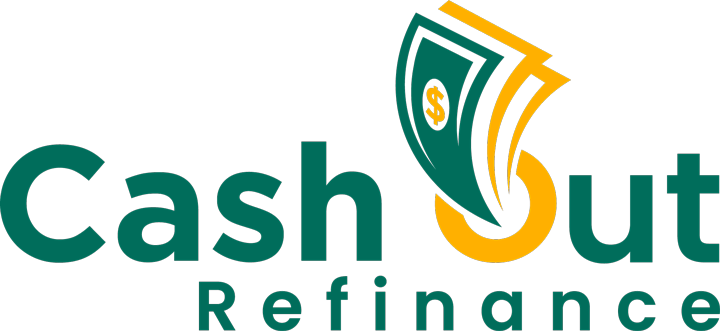How to Qualify for an FHA Cash-Out Refinance: Credit Score, Equity, and More
Refinancing your mortgage can be a strategic financial move, especially when you need access to cash for home improvements, debt consolidation, or other major expenses. One of the most accessible refinancing options for homeowners, particularly those with lower credit scores, is the FHA cash-out refinance. Insured by the Federal Housing Administration (FHA), this type of refinance allows you to tap into your home’s equity and use the funds for various purposes.
In this guide, we’ll take a deep dive into how to qualify for an FHA cash-out refinance, covering key eligibility criteria like your credit score, the amount of equity in your home, and your debt-to-income ratio. By understanding these factors and learning how to improve your financial profile, you can increase your chances of approval and secure the funds you need.

What is an FHA Cash-Out Refinance?
An FHA cash-out refinance is a type of mortgage that replaces your current loan with a new one, allowing you to borrow more than you owe on your home. The difference between your current loan balance and the new loan is given to you in cash, which you can use for a variety of purposes—home improvements, paying off debt, or even funding large purchases.
One of the primary advantages of an FHA cash-out refinance is that it has more lenient qualification criteria than conventional loans, making it a good option for homeowners who might not qualify for other types of refinancing due to credit or equity constraints.
Minimum Credit Score Needed for an FHA Cash-Out Refinance
Your credit score is one of the most important factors in determining whether you qualify for an FHA cash-out refinance. Lenders use your credit score to assess your financial responsibility and your ability to repay the loan.
Minimum Credit Score Requirement
The minimum credit score needed for an FHA cash-out refinance is typically 580. This is significantly lower than the credit score requirements for conventional cash-out refinances, which usually require a score of 620 or higher. This lower threshold makes the FHA cash-out refinance an excellent option for borrowers who may not have perfect credit but still want to leverage their home’s equity.
However, while the FHA sets the minimum credit score requirement at 580, individual lenders may have higher standards based on their internal policies. Some lenders might require a score of 600 or higher, depending on factors like your loan amount, debt-to-income ratio, and the equity in your home.
How Credit Scores Affect Loan Terms
While it’s possible to qualify for an FHA cash-out refinance with a credit score as low as 580, your credit score will still influence the terms of the loan. Borrowers with higher credit scores tend to receive more favorable terms, including lower interest rates. If your credit score is on the lower end, you might be subject to higher interest rates, which could increase your overall borrowing costs.
If you’re aiming to secure better loan terms, consider taking steps to improve your credit score before applying. This could include paying down credit card balances, disputing any errors on your credit report, or making sure all your bills are paid on time.
The Importance of Having at Least 20% Equity in Your Home
In addition to your credit score, the equity in your home is a key factor in determining your eligibility for an FHA cash-out refinance. Equity is the difference between your home’s current market value and the amount you still owe on your mortgage. The more equity you have, the better your chances of qualifying for a cash-out refinance.
FHA Loan-to-Value (LTV) Ratio
For an FHA cash-out refinance, homeowners must have at least 20% equity in their home. This means that after the refinance, your new loan balance cannot exceed 80% of your home’s appraised value. This is referred to as the loan-to-value ratio (LTV).
For example, if your home is worth $300,000, you can borrow up to $240,000 through an FHA cash-out refinance (80% of your home’s value). If you currently owe $150,000 on your mortgage, that would leave you with $90,000 available in cash, minus closing costs and other fees.
How to Calculate Your Home Equity
Before applying for an FHA cash-out refinance, it’s essential to understand how much equity you have in your home. You can calculate your equity by subtracting your current mortgage balance from your home’s appraised value.
For example, if your home is valued at $350,000 and you owe $200,000 on your mortgage, you have $150,000 in equity, or 43% equity. In this case, you would likely qualify for a cash-out refinance, as you meet the 20% equity requirement.
Why Equity Matters for FHA Loans
Equity serves as a buffer for lenders, reducing the risk of lending large sums of money to borrowers. By requiring at least 20% equity, the FHA ensures that homeowners don’t over-borrow against their property’s value. This not only protects lenders but also helps borrowers avoid financial strain in the future if home prices fall or if their personal financial situation changes.
Debt-to-Income Ratio (DTI) and Income Verification
Your debt-to-income ratio (DTI) is another critical factor in determining whether you qualify for an FHA cash-out refinance. The DTI ratio is a measure of how much of your monthly income is used to pay off debt, including your mortgage, credit cards, student loans, and other obligations. Lenders use this ratio to assess your ability to manage additional mortgage payments after the refinance.
FHA DTI Requirements
For an FHA cash-out refinance, the maximum DTI ratio allowed is typically 43%, though some lenders may allow a slightly higher ratio (up to 50%) if the borrower has other compensating factors such as a higher credit score or substantial cash reserves.
To calculate your DTI ratio, add up all of your monthly debt payments, including the estimated new mortgage payment after the refinance, and divide that by your gross monthly income. For example, if your total monthly debt payments are $3,000 and your gross income is $7,000, your DTI ratio would be 42.85%, which is just within the acceptable range for an FHA cash-out refinance.
Income Verification Requirements
Lenders will also need to verify your income to ensure that you can afford the new mortgage payments. You’ll need to provide several documents, including:
- Pay stubs from the last 30 days
- W-2 forms from the past two years
- Tax returns (if self-employed)
- Bank statements to verify your assets
These documents help lenders assess your financial stability and ability to repay the loan.
How to Improve Your Chances of Approval
If you’re concerned about meeting the eligibility criteria for an FHA cash-out refinance, there are several steps you can take to improve your chances of approval. By strengthening your financial profile, you can increase your likelihood of securing a favorable loan and potentially lower your interest rate.
1. Improve Your Credit Score
Even though the credit score needed for an FHA cash-out refinance is relatively low, improving your credit score can help you qualify for better loan terms. Some ways to boost your credit score include:
- Paying down existing debt: Reducing your credit card balances can lower your credit utilization ratio, which can improve your score.
- Avoiding new credit inquiries: Applying for new credit can temporarily lower your score, so avoid new credit applications in the months leading up to your refinance.
- Checking your credit report for errors: Review your credit report regularly to ensure there are no mistakes or inaccuracies that could be dragging down your score.
2. Increase Your Home’s Equity
If you don’t have enough equity to meet the FHA’s 20% equity requirement, there are ways to increase your home’s value and reduce your mortgage balance:
- Make additional mortgage payments: Paying extra toward your mortgage principal can help you build equity faster.
- Complete home improvements: Certain renovations or upgrades, such as a kitchen remodel or bathroom renovation, can increase your home’s value and, consequently, your equity.
3. Reduce Your Debt-to-Income Ratio
Lowering your DTI ratio can also improve your chances of qualifying for an FHA cash-out refinance. Focus on paying off high-interest debt, such as credit card balances, and avoid taking on new debt before applying for the refinance. Additionally, consider increasing your income through a side job or by negotiating a raise, which will also help improve your DTI ratio.
The FHA Cash-Out Refinance Process: Step-by-Step
Once you’ve determined that you meet the eligibility criteria, it’s time to start the FHA cash-out refinance process. Here’s a step-by-step overview of what to expect:
1. Gather Financial Documents
Before applying for the refinance, gather all the necessary financial documents, including pay stubs, tax returns, and W-2s. This will help streamline the application process and ensure that you can provide the lender with all the required information.
2. Shop Around for Lenders
Not all lenders offer the same terms for an FHA cash-out refinance, so it’s important to shop around and compare loan offers. Look for lenders that offer competitive interest rates, reasonable closing costs, and flexible terms that align with your financial goals.
3. Get a Home Appraisal
Your lender will require a home appraisal to determine the current market value of your property. The appraiser will evaluate the condition of your home, its size, location, and other factors to determine its value. The appraisal is essential in calculating your loan-to-value ratio and determining how much equity you can access through the refinance.
4. Submit Your Application
Once you’ve chosen a lender and gathered all the necessary documents, you’ll need to submit a formal application. Be prepared to provide information about your income, assets, debts, and current mortgage balance.
5. Underwriting and Approval
After you submit your application, the lender’s underwriter will review your financial information to ensure that you meet the eligibility criteria. The underwriting process typically takes several weeks, during which time the lender may ask for additional documentation or clarification.
6. Closing the Loan
If your loan is approved, you’ll move on to the closing phase, where you’ll sign the necessary documents, pay any closing costs, and finalize the loan. After closing, you’ll receive the cash from your FHA cash-out refinance, which you can use as needed.
Final Thoughts
Qualifying for an FHA cash-out refinance involves meeting several key criteria, including having the right credit score, sufficient equity, and a manageable debt-to-income ratio. By understanding these requirements and taking steps to improve your financial profile, you can increase your chances of securing the loan and tapping into your home’s equity.
If you’re considering an FHA cash-out refinance, consult with a mortgage professional to discuss your options and explore how this refinancing option can help you meet your financial goals.

